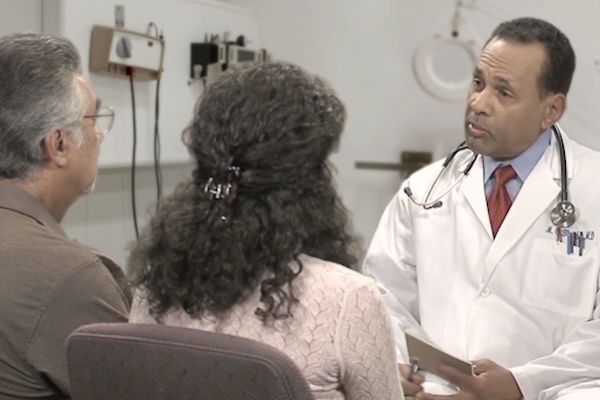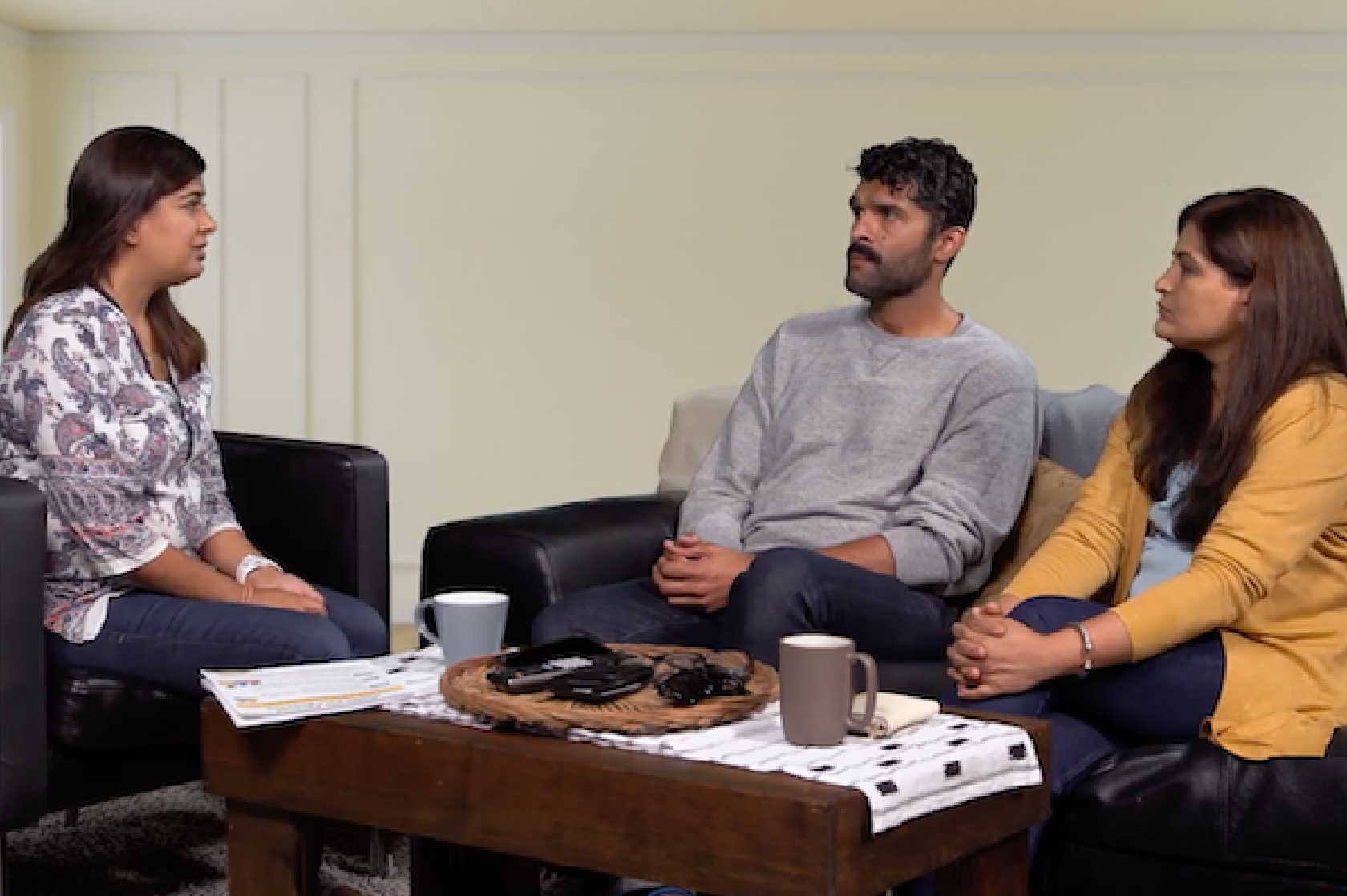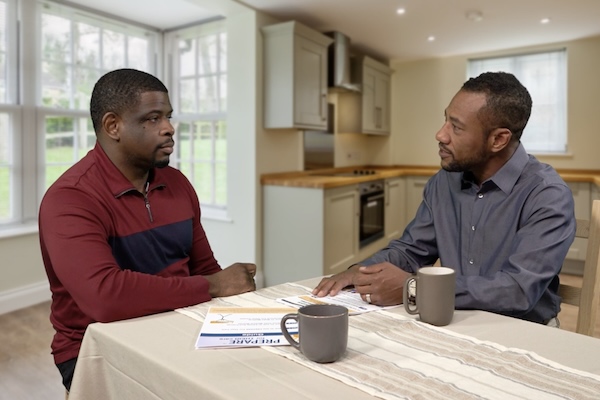Video Transcript
In This Video You Will Learn:
How To Make Medical Decisions for Other People
And, How 6 Questions Can Help
First and foremost, Thank You for Caring.
Thank you for helping someone with their medical decisions.
We Know It Can Be Hard To Make Decisions for Others.
• Remember that no one is perfect.
• There is often no one right answer.
• It is normal to feel worried, anxious, or guilty.
• All you can do is your best.
• You are doing enough just by showing up and trying.
6 Questions Can Help You Make Medical Decisions for Others.
First, we will list the 6 questions.
Then, we will go over each of them in more detail.
The questions are only examples . You do not need to ask all of them.
Choose the questions that are right for you.
The 6 Questions:
1. What does Quality of Life look like for your family member or friend?
2. Have they shared any Prior Medical Wishes ?
3. Have they shared how they felt about Prior Medical Experiences ?
4. What would They Say if they could speak for themselves?
5. What is in their Best Interest at this time?
And, if you only have time for 1 question:
6. Will the medical options help them have what they consider a good Quality of Life ?
The 6 Questions
Now, let’s go over each of the 6 questions, step-by-step.
Remember, these questions are only examples.
Choose the questions that are right for you.
1. What Does Quality of Life Look Like for Your Family Member or Friend?
Quality of life, or what brings people joy and meaning in life, differs for each person.
Did this person speak with you about what is most important to them?
Do they have hobbies, pets, or activities that add joy and meaning to their life?
Did they talk about anything that would be hard on their quality of life, such as an illness or accident?
2. Have They Shared Any Prior Medical Wishes?
Have they talked with you about their medical wishes?
Have they filled out an advance directive form or a living will?
These forms may help you and the medical providers think about the care they may have wanted.
If they filled out a form in the past, Is the Advance Directive Up to Date?
A prior form may not apply now if their health, life, or relationships have changed.
Has their health changed since filling out the form?
Have their family or relationships changed?
Do the forms match what they have told you or others about what is important to them?
Is the form or what they told you the most recent.
Go with what is the most recent.
3. Have They Shared Any Prior Medical Experiences?
Past experiences with illness or stories about someone else can help people decide what matters most in life.
Has this person talked with you about their past medical experiences, such as being in the hospital?
Have they talked about other people’s experiences, such as friends or family who have been very ill or near the end of life?
4. What Would They Say if They Could Speak for Themselves?
Has this person ever talked about any strong feelings they have about medical treatment?
Such as, “I never want X treatment”.
What kind of medical care would they say they would want or not want?
5. What Is in Their Best Interest at This Time?
People’s health may change over time.
Their medical wishes may change too.
And, people cannot predict what might be best for them in all cases in the future.
You may need to make decisions you never talked about with them before, or that is on an advance directive.
And you may need to change their prior decisions if that would be in their best interest at this time.
It can help to think about what is best for them in this moment.
For example, it may be best in this moment for their quality of life to have or not have certain medical treatments.
6. Do the Medical Options Help Them Have What They Consider a Good Quality of Life?
This is the MOST important question.
Quality of life, or what brings people joy and meaning in life, differs for each person.
Will the treatment options help your family member or friend have what they consider to be a good quality of life?
It is important to think about Changes in Quality of Life Over Time
When an acute illness or hospitalization happens, there are several paths to recovery that are different for each person.
For example, some people have a full recovery and get back to their good quality of life.
Other people have a partial recovery and come back to a lower, but OK quality of life for them.
And other people have ongoing decline and have an overall worse quality of life.
It is important to think about where your family or friend’s quality of life is now:
Is it good , lower but OK , or getting worse over time?
In This Next Video, You Will See a Family Using the 6 Questions.
This is one example.
Your situation may be different.
*See video at 7:17 to 7:30 on the video timeline
If You Need More Help Making Decisions for Someone Else
Ask to speak with the medical care team.
The team may include doctors, physician assistants, nurses, nurse practitioners, social workers, case managers, chaplains, or a patient advocate.
It is their job to support you in these decisions.
You Can Also Ask to Speak With the Palliative Care Team.
The Palliative Care Team
Palliative Care medical providers have special training to provide an extra layer of support for people at any age being treated for serious illness.
The team treats pain and other symptoms at the same time people are getting other medical care to treat their serious illness.
The team also helps people decide on the medical care that is right for them.
They support both patients and caregivers when making medical decisions.
And, they support families when making decisions together.
Remember It Is OK To Ask for Help and Care for Yourself.
To Learn More see the video called, “Advice from other medical decision makers”.
You May Also Learn:
That you are not the medical decision maker, when you thought you might be.
And, that being someone’s medical decision maker may not be right for you.
To learn more in the section called “How make medical decisions for other people” see these bonus videos called “How to help even if you are not the decision maker”, and, “How to ask someone else to be the decision maker”.
To learn more about other resources click on “How to Use this program and about medical planning”.
Here you can learn more about medical planning and about advance directive forms.
You can also click on the “More Information” button.
In the pop-up window click here to see a list of terms used in the program, here to see Frequently asked questions or “F. A. Qs”, here to see other resources for decision makers and caregivers, here to see a brief video about how a special medical service called Palliative Care Can Help.
In This Video You Learned:
About 6 Questions That Can Help You Make Medical Decisions for Someone Else
1. What does Quality of Life look like ?
2. Have they shared Prior Wishes ?
3. Have they shared Prior Medical Experiences ?
4. What would They Say ?
5. What is in their Best Interest ?
6. Will the medical options help with Quality of Life ?







